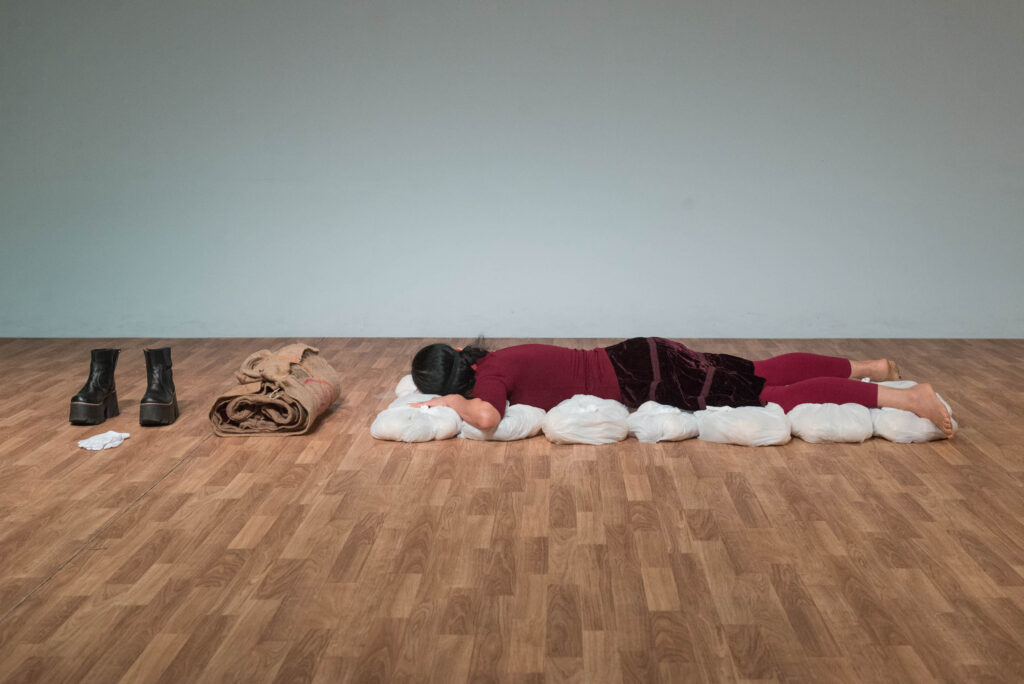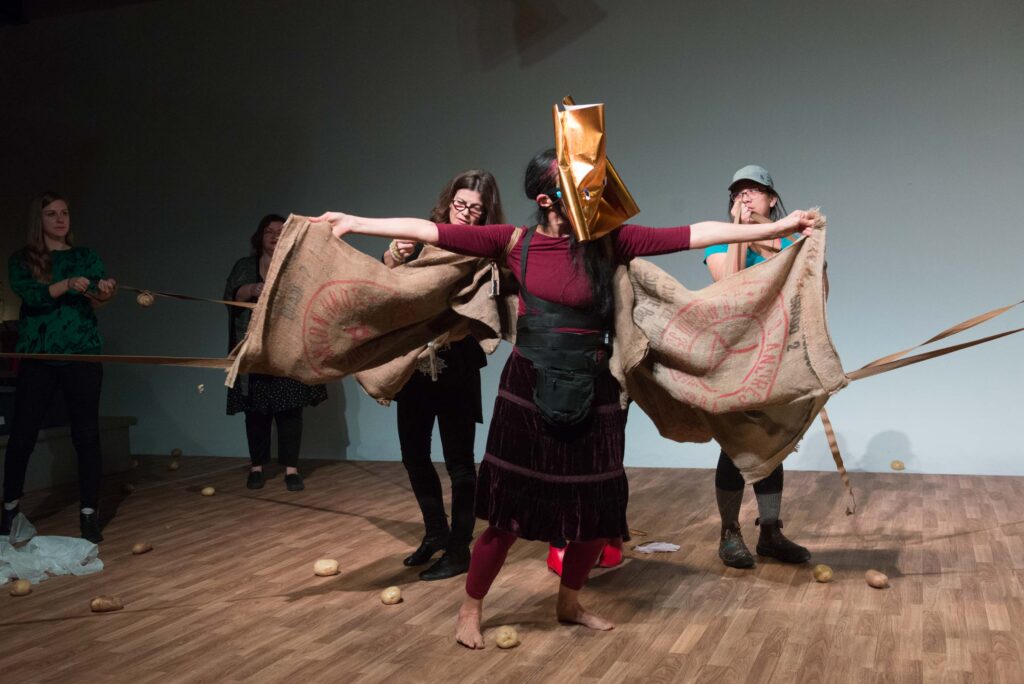By Jessica Karuhanga
compelled to the unanswerable / before language there was the earth

IMAGES by Henry Chan
Graciela Ovejero Postigo poetically describes her work as a departure from the “in-betweens and peripheries”. As a diasporic subject myself I often describe my body as my homeland borne of the migrant sediment of my parents and embodying the salient splits between here and there. The diasporized subject or so-called “subaltern” is always envisioning a site where they are not denied their humanity. They thirst for an existence beyond the maladies of colonialism. They refuse any notion that they never breathed or pulsated before language formed and by extension the possibility of self-articulation. There is an urgency to connect to ancestry in some other place, perhaps deep in the wells of the earth, and yet everything is fragmented. Even if you feel memory in your bones when it is articulated it is often fractionalized. Ovejero Postigo began her lecture suggesting we consider notions of utopia as a necessary strategy for art production. Riffing off this notion let us return to my first witnessing of her movement.
A pulsating rhythm echoes from periphery of the room. Later I am told the earth was being live-streamed from Germany. Postigo is seated on a suitcase. She is preparing for some symbolic and physical departure. The rhythm of the sounds feels as though it is building momentum. She doesn’t rush her gestures. She takes care. She carefully ties small strands of her hair beneath her chin. She carefully adjusts her goggles. She undoes the suitcase and pulls out white gloves. She puts them on then takes out plastic garbage bags filled with potatoes. She carries these bags in pairs and carefully places them in the centre of the room. She does this over and over until there are rows of bags. Three by seven. She returns to the suitcase and pulls up a roll of burlap. She carefully places this roll at the head of the rows of plastic bags. Burlap may be used for sandbags and as a medium for transporting goods.
She takes off her platform boots and carefully places them by the roll of burlap. She lays on the bags of potatoes. Relaxes. She is breathing meditatively. She begins to roll on the bags. She rolls and changes their form. They become heaps, they become sculptures, they prop her up, and she is holding them. She arranges and undoes and rearranges. This movement and its progression is determined. There is urgency. She is pushing their form to the furthest corner of the room. Her back is mostly towards us. This is a kind of partition and yet I feel completely engaged in my observing. She grabs two bags and begins walking back toward us. This signals a turn in her movement. Through her goggles you can see her gaze is directed toward whomever she wants to participate. Her chosen collaborators mirror her specific gestures as she guides. Place the bag on top of your head and tear the bag. Potatoes fall along the contours of their bodies and roll on to the ground. She repeats these steps over and over. Potatoes are strewn throughout the room and in between the seats of the audience. The partition is split. We are there with her.
Returning to the centre of the room, Postigo unrolls the burlap to reveal they are several single bags stitched and pinned together. She spreads them out. They have black circles painted on them. She places a white chalk marker on each square. She begins to draw on her face. She marks one of the bags. She dresses herself with the bags. These gestures much like her gaze and signals earlier suggest a desire for further participation. There is immense trust from her position. Audience members assist her in shoving potatoes in to burlap bags. They hold on the straps she gives them. They draw markings and messages on the black circles. Among them, “Love Earth” and “Earth belongs to Indiginos”. Potatoes continue to fall from the futile burlap bags. She is like a bird that is ceaselessly reaching up while grounded, rooted, buttressed and held up by her collaborators.

